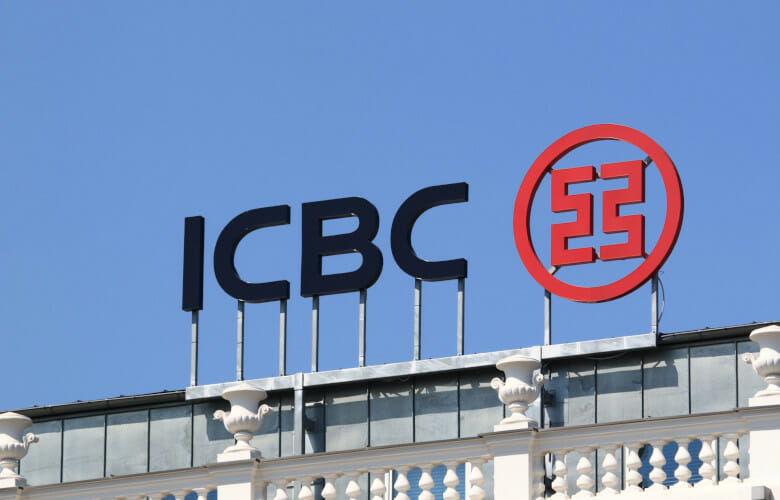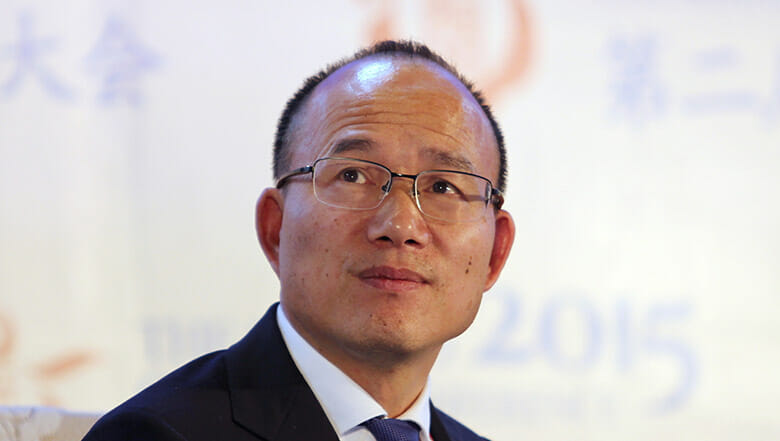
Fosun’s loan came from a syndicate of banks led by ICBC
A subsidiary of Chinese investment giant Fosun International has received a RMB 12 billion ($1.8 billion) loan from a syndicate of mainland banks, according to reports, as the Chinese government ramps up support for indebted private firms.
Shanghai Fosun High Technology Group Co. secured the credit line from a group of lenders led by state-owned Industrial and Commercial Bank of China (ICBC) on Thursday, Chinese news outlet Caixin reported, citing lenders and people familiar with the matter. The syndicate also included China Minsheng Bank, Shanghai Pudong Development Bank, and HSBC Bank (China).
Led by billionaire Guo Guangchang, Hong Kong-listed Fosun is known for its failed bets on brands like resort operator Club Med and travel agency Thomas Cook. The Shanghai-based conglomerate saw its financial position deteriorate in the second half of last year but has improved its credit through asset sales in recent months, including a deal announced last week to sell its entire interest in four industrial companies for a combined RMB 6.7 billion.
Credit Downgrades
Fosun High-Tech Group, which presides over leisure services, tourism real estate, pharmaceuticals, and other businesses, was said to be negotiating with ICBC for a syndicated loan of no more than RMB 10 billion as early as August 2022.

Fosun chairman Guo Guangchang is determined to boost his conglomerate’s credit (Getty Images)
The new loan has a term of two years and the collateral may include a portion of the equity of Shanghai Fosun Pharmaceutical and Shanghai Forte Land, a real estate developer owned by Fosun, mainland real estate website Guandian reported.
S&P Global Ratings downgraded Fosun International’s credit last September, arguing that the conglomerate’s thinning liquidity buffer and reliance on short-term borrowings had placed it in a difficult position given the constrained financing environment for privately owned firms in China.
The ratings agency demoted the company by one notch to BB- for its long-term issuer credit rating and senior unsecured debt rating, noting that Fosun’s access to the offshore and onshore bond markets had been “practically shut” over the past few months amid macroeconomic challenges and multiple defaults by property developers.
S&P noted that Fosun’s liabilities coming due between July 2022 and June 2023 included a RMB 28 billion bond and RMB 33 billion in bank loans. Moody’s Investors Service followed suit in October by lowering Fosun International’s rating from B1 to B2 and downgrading the $500 million bond issue of a BVI-registered unit, Fortune Star.
Moody’s estimated that the firm had experienced a 30 percent decline in the market value of key holdings from the end of June to 20 October, driving a 10 percent contraction in Fosun’s estimated portfolio value as of June.
Fosun International had total debt of 100 RMB billion, along with RMB 270 billion of assets, according to a statement by the company in September. The Fosun family of companies, including its listed subsidiaries such as Shanghai Yuyuan Tourist Mart Group and Fosun Pharma, held RMB 260 billion in total debt.
Righting the Ship
Fosun achieved a comeback in credit markets after telling analysts in October that it planned to sell up to RMB 50 to 80 billion in assets within the next 12 months, with its dollar bonds due 29 January rebounding to around 99 cents from a low of 76 cents in October, Bloomberg noted.
The company raised $100 million in August and September by selling shares in Shanghai-listed retailer Shanghai Yuyuan Tourist Mart and New China Life Insurance. Last week, Fosun announced it would exit its minority stakes in four industrial companies controlled by steel tycoon Zhang Zhixiang.
Media reports in November also suggested the company was looking to offload its stake in Alibaba’s logistics arm Cainiao and to be exploring a potential sale of Paris-based Club Med, although Fosun told Bloomberg it had no plans to sell the resort chain.
Fosun joins a growing list of debt-strapped Chinese firms that have received a helping hand from state-controlled enterprises, as Beijing backtracks on the deleveraging policy it rolled out in 2020 to reduce risky lending in the real estate sector.
Country Garden Holdings, China’s top developer by sales, raised $280 million in financing from ICBC (Asia), the Hong Kong arm of the mainland bank in December, after suffering plummeting home sales and credit downgrades.
Earlier this month, struggling developer Sunac China Holdings agreed to sell its majority stake in a Shenzhen indoor ski resort project for RMB 3.6 billion to its government-backed joint venture partner, Zhuhai Huafa Property Development.
Leave a Reply